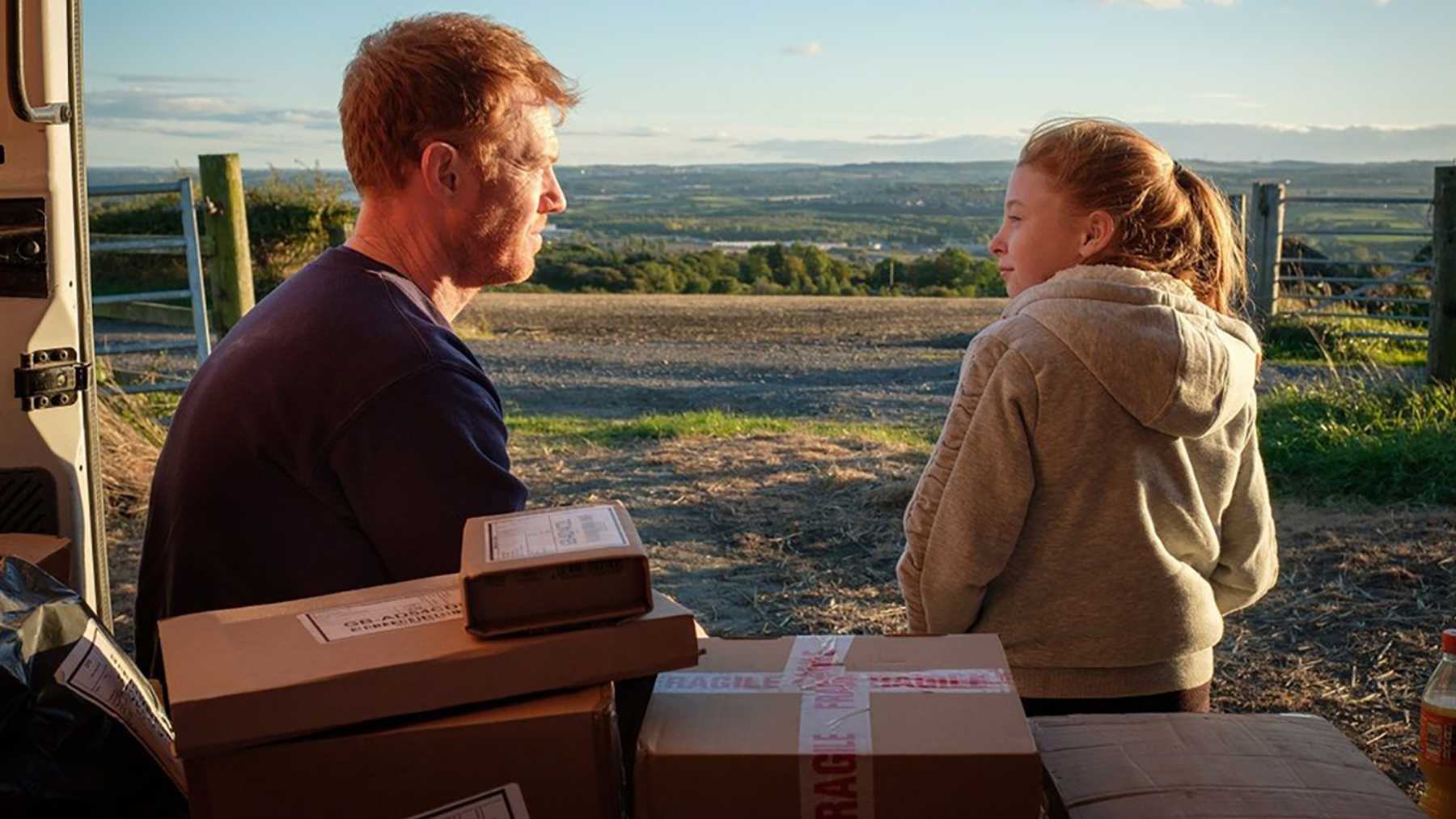By Chlotrudis Independent Film Society
Rating: 4.3 cats
Director: Ken Loach
Starring: Debbie Honeywood | Katie Proctor | Kris Hitchen | Rhys Stone

Country: belgium, france, united_kingdom
Year: 2020
Running time: 101
IMDB: https://www.imdb.com/title/tt8359816/reference
Diane says: “A nuclear family in Newcastle, England takes a beating in the latest from director Ken Loach (82 years old!). In the first scene, Dad signs on as an independent contractor for a delivery company—already enough to start this viewer wringing her hands. Mom is a home health aide under equally bad terms of employment, and their 16-year-old son is testing his limits. Is there any hope for them to get ahead? Can they even keep their family intact?
“I’m not sure if Loach, champion of the working class, uses all non-professional actors, but the stumbles in line readings distracted me. A beautiful and restrained orchestral score underlies the whole film. 4 cats.
“Online at the Coolidge Corner Theater and others.”
Michael says: “Wow, when Ken Loach hits, he really hits decisively. SORRY WE MISSED YOU tells the story of an average British, working-class family barely hanging on by their nails, and just getting weight attached to their feet one more each day. After an endless series of dead-end jobs, Ricky tries his hand working for himself as a delivery driver for a large distribution company. Of course to do that, he has to buy a van, which is only possibly by selling the family car that his wife, Abbie, relies on for her job as a home health aide. Both parents work long hours, still barely scraping by, and definitely not spending enough time with their kids, high schooler (when he deigns to attend) Seb, and younger, good daughter Liza. The tensions between parents and teenaged son are prickly, and Seb knows how to push their buttons. Abbie tries to counter with compassion, but Ricky is being pushed further to the edge by Seb’s behavior, until an unfortunate misunderstanding causes a blow-up that puts the strained family in an even more precarious position.
Don’t look for a sweeping miracle to come in and change everyone’s fortunes. Life is tough for this family at the start, and I daresay it’s even tougher as the film closes, but what’s remarkable about this film and this family is how, even when they are at each other’s throats with frustration and anger, the compassion and love they feel for each other is so evident by the quiet actions, and emotional moments they spend alone, struggling to get through and do right by each other. There were a couple of moments when I teared up just because of a simple line of dialogue, or a small act of care. It’s a tough film and one that is clearly representative of millions of people around the world. Surprisingly, I hadn’t seen a Ken Loach film since 2006’s THE WIND THAT SHAKES THE BARLEY, which was a mixed bag for me. And you’d have to reach back to 2000’s BREAD AND ROSES, or his films LADYBIRD LADYBIRD and RIFF RAFF from the 90’s to find films of his I really enjoyed, but SORRY WE MISSED YOU really had some power. Perhaps long-time screenwriter Paul Laverty had something to do with it, or else at age 84, Loach just tapped into something so touchingly and heartbreakingly real that made me fall in love with this struggling, flawed family. 5 cats
Chris says: “Ken Loach directed his first feature in 1967; as a longtime socialist and proponent of kitchen-sink realism, he’s never run out of material, which keeps him relevant even if that reflects poorly on how society continually treats the working classes. So relevant, in fact, his latest effort would not have existed 10 or 15 years ago as it focuses on a man struggling to support his family by taking work as a online order parcel delivery person (a la Amazon), owning his vehicle but discovering he has very little independence or control regarding the severe ‘bottom-line’ aspect of his job, which values productivity over anything resembling humaneness.
“As is typical in Loach, the narrative builds like an ever-precariously stacked house of cards–the wife is overworked as well, their teenaged son shifts from mere delinquent to acting out in rage–until it tumbles. As usual, Loach does not offer any easy answers or closure; here, this refusal to compromise works in his favor and reinforces why he excels at this sort of miserablism more than a contemporary like Mike Leigh (who is better suited to getting at a similar conclusion through ironic commentary and gallows humor.) And yet, even if his protagonist’s fate is left open-ended, Loach has dissected and presented this family’s plight so carefully and completely that the lack of denouement still satisfies. 4 cats“
